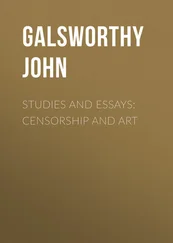Mina Loy - Stories and Essays of Mina Loy
Здесь есть возможность читать онлайн «Mina Loy - Stories and Essays of Mina Loy» весь текст электронной книги совершенно бесплатно (целиком полную версию без сокращений). В некоторых случаях можно слушать аудио, скачать через торрент в формате fb2 и присутствует краткое содержание. Год выпуска: 2011, Издательство: Dalkey Archive Press, Жанр: Современная проза, на английском языке. Описание произведения, (предисловие) а так же отзывы посетителей доступны на портале библиотеки ЛибКат.
- Название:Stories and Essays of Mina Loy
- Автор:
- Издательство:Dalkey Archive Press
- Жанр:
- Год:2011
- ISBN:нет данных
- Рейтинг книги:3 / 5. Голосов: 1
-
Избранное:Добавить в избранное
- Отзывы:
-
Ваша оценка:
- 60
- 1
- 2
- 3
- 4
- 5
Stories and Essays of Mina Loy: краткое содержание, описание и аннотация
Предлагаем к чтению аннотацию, описание, краткое содержание или предисловие (зависит от того, что написал сам автор книги «Stories and Essays of Mina Loy»). Если вы не нашли необходимую информацию о книге — напишите в комментариях, мы постараемся отыскать её.
Stories and Essays of Mina Loy
Stories and Essays of Mina Loy — читать онлайн бесплатно полную книгу (весь текст) целиком
Ниже представлен текст книги, разбитый по страницам. Система сохранения места последней прочитанной страницы, позволяет с удобством читать онлайн бесплатно книгу «Stories and Essays of Mina Loy», без необходимости каждый раз заново искать на чём Вы остановились. Поставьте закладку, и сможете в любой момент перейти на страницу, на которой закончили чтение.
Интервал:
Закладка:
Three boys.
The first looked up above him and stared, that first stare, without focus, without enquiry, without comment, into a pale silk penthouse with vapoury wavy white frills.
Beside him a young woman with serenely braided hair was winding white and pink and blue wool round the radius of a cardboard circle with a hole cut in its center.
Presently a fluffed and vari-coloured ball hung above the horizontal eyes.
About the time he was lifted from the scarcely perceptible soapiness of his bath, to the fleeciness of a towel, warm from the fire-guard, a brisk and scarcely middle-aged man would hurry into the room.
He would shut the door cautiously, not letting go of the handle until he had turned it, and patting the pudgy thorax the baby was arching forwards with his tiny fists clenched to it; cried jovially
“How’s the king of the castle?”
Whereafter the shining solstice on the boat-like curves of the warm milk-bottle would fade comfortably into the irresistible hiatus of sleep.
+
The second looked up above him with the exact degree of detachment of the first, into a shadowy, dusty irregular bulgy fringe of battered kitchen utensils and worn-out lamps.
His pillow, under his left ear, was dimpled with a drying pool of yellow curd, to which flies mustered, from which they dispersed to scrape their legs and pattern the inedible surfaces of his linen with minute specks.
An old-young woman with dusty curls and a spot of grease on her gaudy bosom, was throwing bunches of old boots out of the case on which the basket-cradle lay, for the inspection of a couple of wandering workmen.
The boots of these men had worn down to their arrival, and they had come to look for work.
Boots are the civilized man’s last foothold in society, without boots — —!
They were thus one of the stable sources of income to the parents of this second infant, who throve on the whole honestly.
If sometimes there might be a doubt as to the origin of any of their much behaggled purchases, the ragman breathed excusingly to himself
“Thou my God seest him.”
And would always spit on the coin he received for them.
Under the scrap of burgundy coloured carpet for a cradle-cover, the ragman’s infant rehearsed the battle of life with his feeding bottle, to which was attached an India-rubber tube aged to the colour of seaweed.
The tube had a nasty habit of flattening together and clinging to its own inside, when the mightiest spasms of insuction became powerless to imbibe the cold mixture of water and condensed milk.
Often the bottle would slip down the side-long niches of the cradle, head-up with its sustenance lying idle in the bottom.
A dish of yellow bone, worn like a Pierrot’s frill by the teat, provided to flatten against the lips and prevent the swallowing of the tube, would keel over whenever the tube played serpent and sidle into the baby’s mouth.
But it was this child’s destiny that he should live. So nothing could choke him. And every once in a while the opposed and unguided gymnastics of the baby and the bottle would free some current of air and the tube sprang back to rotundity.
The nauseous-sublime liquid would gush surprisingly down the baby’s throat, oftenest, at the time when quite worn out he was falling asleep, hypnotised by the regularity of his suctional reflex, into an illusion of satiety. His abdomen filled with what, outside him, was the atmosphere driving the stuffy sugary stench from his clammy swaddles up to his drowsiness.
+
The third was born in that addressless household, known as a den of thieves. The first vision of his looking upward is when propped upon his mother’s knee, pale, in a public house, he squints at his girlish bonnet, puffed with transparent and unconvincing silk.
The offspring of a deliberate passion born into his parents’ world of unaccountable luxury.
Already he wears bangles on his wrists; already he has sipped his drop of beer.
+
The first child, Ian Gore, went to a preparatory school for the sons of gentlemen.
The second child, whose name was Jacky Sider, went to board-school.
The third child, with his apple-y quality for his parent’s eye, was prepared by private tutors, exceedingly slick with their hands.
He also had among so many lawless things, one lawful thing, a name.
That name was Hyde Park Hinderman.
+
Several of the earlier years of these three heirs were taken up with the pouring of the parents’ minds, into their own. Years in no way notable except for the children’s curious preference for the society of the lower animals.
Indeed, as none of these children were of vicious nature, the placid social relation to cats and dogs, and on rare occasions, elephants and tigers of Ian, Jacky and Hyde Park were identical.
They did not review these parentalised contents of their respective minds until that day on which each became conscious of his ego.
The ego no longer to be taken as a matter of course as undetached from its surroundings.
On that day the ego detached itself, and making a volte-face on the parental precepts, pronounced judgement upon them.
Ian Gore, on inspecting the chambers of his mind, finding himself stronger than anything that had been stored there, proceeded to break up the furniture. He denounced the fabricated truth of organised society as lies; precedents as corpses. He did not stop to question authority before he defied it. The moulding of the mind by a laboriously perfected system of education to the loftiest standard established by the human intellect, he objected to as pseudo-classic piffling. As for sportsmanship he defined the ball as the nincompoop’s microcosm, and he doubted the beneficence of killing things that preferred to be alive anyhow.
Of good form — and Ian’s father could be placed in the irreproachable minority — there was something clownlike about his soul, that urged him to pull faces at it; to stick out his tongue. He devised, for the future, how to frighten good form to death! Already he had appeared at dinner with a collar not quite fresh.
These decisions came completely into his mind as ideas, in conversation he summarised them with—
“It’s all bilge,” or, “You can’t fool me.”
+
For Jacky there had been no presentation of the highest standard of the human intellect, of sportsmanship, of good form.
He had been told that thrift was the moral motive of mankind. That three rags and an old fender equal one dinner, forty years of thrift, one old-age pension. That it was thrifty people that God, or was it the Prince of Wales, was most likely to stoop down to and pat on the back,
“Well done my good and faithful servant, Slow-but-Steady.”
He did not think overmuch of the nincompoop’s macrocosm; it was too likely to roll down the gutter; too likely to entice you under the wheels of a van.
His lively instinct was however, to get his hand into the pocket of that stooping God. For Jacky grew tired of the dusts of thrift. He was lured by the perfumes of brazen girls.
The abstract authority of the moral concept that Ian defied, took the concrete form of a policeman in Jacky’s world. For Ian the policeman was only a faithful servant to be kept always in the same place, to be asked for various kinds of information.
Ian defied authority openly. He could. Belonging to the class in which authority was bred.
Jacky defied authority secretly, belonging, as he did, to that class for whom authority is “intended.” For Jacky, slow of attention in the board-school, had found his eyes, his hands, to be marvellously dexterous.
He was, although good form had been presented to him as the fitness of smirking when answering his betters, not servile; not a coward. He guessed that betterness only meant advantage. He was going to “get at” advantage with his nerve.
Читать дальшеИнтервал:
Закладка:
Похожие книги на «Stories and Essays of Mina Loy»
Представляем Вашему вниманию похожие книги на «Stories and Essays of Mina Loy» списком для выбора. Мы отобрали схожую по названию и смыслу литературу в надежде предоставить читателям больше вариантов отыскать новые, интересные, ещё непрочитанные произведения.
Обсуждение, отзывы о книге «Stories and Essays of Mina Loy» и просто собственные мнения читателей. Оставьте ваши комментарии, напишите, что Вы думаете о произведении, его смысле или главных героях. Укажите что конкретно понравилось, а что нет, и почему Вы так считаете.












